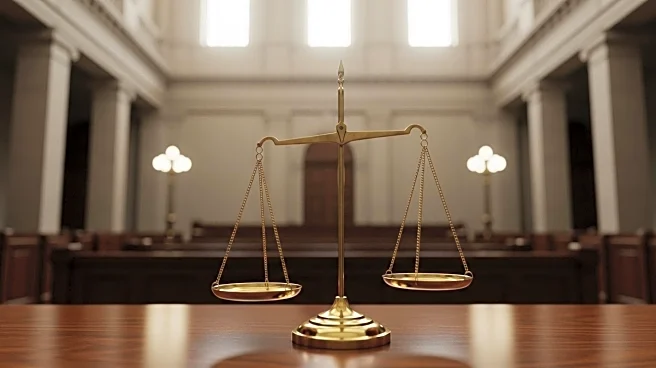What is the story about?
What's Happening?
The U.S. Supreme Court is set to begin a new term with a focus on executive power and several significant legal challenges. Among the cases on the docket are those that could impact the Voting Rights Act, campaign fundraising laws, and President Trump's tariffs. The court will also address the legality of President Trump's firing of independent agency commissioners before their terms are completed. This term follows a record-breaking period where the court granted numerous emergency requests from the Trump administration, often without full hearings or explanations. The court's decisions in these cases could have lasting implications on the balance of power between the presidency and other branches of government.
Why It's Important?
The Supreme Court's upcoming decisions could significantly alter the landscape of U.S. governance and law. By potentially expanding executive power, the court's rulings may affect how future presidents exercise authority, particularly in areas like regulatory oversight and international trade. The outcomes could also influence the political dynamics in Congress, especially if the court upholds or strikes down key legislative protections like the Voting Rights Act. These decisions will be closely watched by political leaders, legal experts, and civil society groups, as they could redefine the limits of presidential power and impact the functioning of independent agencies.
What's Next?
As the Supreme Court hears these cases, stakeholders across the political spectrum will be preparing for the potential outcomes. Political leaders may need to consider legislative responses to any shifts in executive power. Additionally, the court's decisions could prompt further legal challenges or adjustments in how federal agencies operate. The broader public and advocacy groups will likely engage in debates over the implications of these rulings, particularly concerning civil rights and electoral integrity.
Beyond the Headlines
The focus on executive power raises questions about the long-term balance of power in the U.S. government. The court's decisions could set precedents that affect not only the current administration but also future presidencies. This term may also influence public perception of the Supreme Court's role in checking executive authority, especially as its approval ratings have been declining. The ethical and constitutional dimensions of these cases will be scrutinized, potentially affecting the court's legitimacy and the public's trust in its impartiality.















